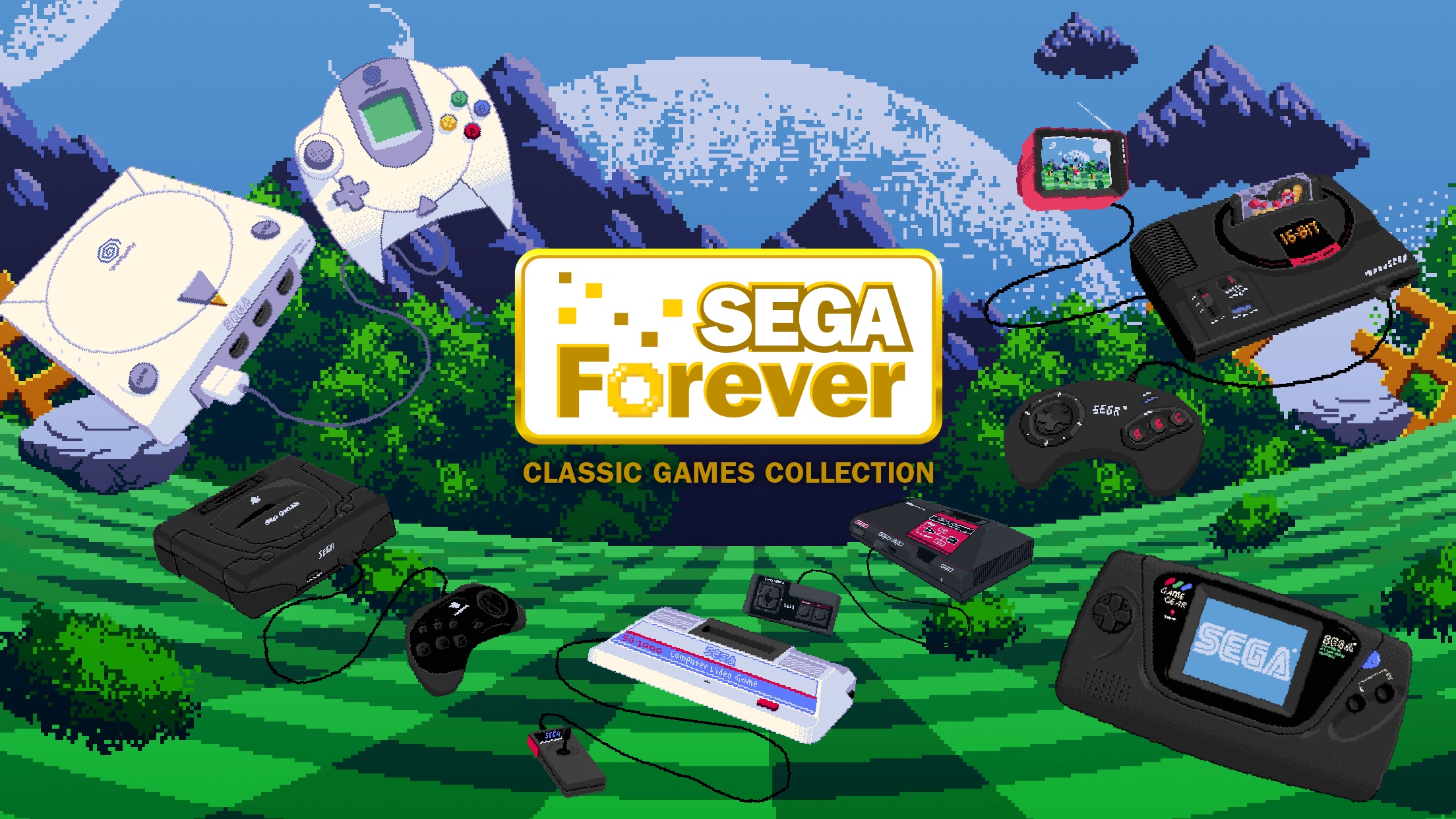Remember “Genesis does what Nintendon’t”? It was Sega’s cheeky marketing salvo lobbed at arch-rival Nintendo not so many decades ago, when the 16-bit Genesis’s star was in the ascendant. It’s a line you might imagine Sega trotting out again in 2017, as it debuts something it’s calling “Sega Forever,” a mobile iOS and Android app that plops classic Sega games “from every console era” on your smartphone or tablet. The world can grab it on June 22.
Sega tongue-in-cheekly describes the collection as “a re-awakening of archetypal gaming, an ode to the deep and diverse Sega catalogue, and the beginning of a retro revolution.” We’ll see about the revolution, but on its face, it sounds like everything mobile wonks have been clamoring for (from the likes of Nintendo et al.) for years.
Let’s check some boxes. The games are free-to-play, supported by ads, can be enjoyed offline, and have extras like cloud saves, controller support and leaderboards. For $2 per game, you can remove the ads, and Sega says it plans to add additional titles rolling forward (official emulations as well as ports from all Sega console eras). At launch, you can pick from Sonic the Hedghog, Phantasy Star II, Comix Zone, Kid Chameleon and Altered Beast.

I don’t want to be the killjoy here, because free Sega classics, even ad-supported ones, are cause for some measure of celebration. But there remains one fairly serious problem that this maneuver — candy-glazed by the allure of free-to-play — wants to gloss over: Many of these games were never meant to be played on touchscreen devices.
Sega’s press release doesn’t get into any of that, but does state that each game will be “adapted specifically for mobile devices while remaining faithful to the original games.” Having played none, the only rational response can be “We’ll see.” But mobile’s track record for retro ports isn’t strong. Of the many mobile conversions of legacy 8- and 16-bit games I’ve played, especially action-angled or platforming ones that require almost pixel-precise guidance, all have been clumsy and ultimately joyless experiences, whether their translators interpolate buttons presses with tap-anywhere mechanics, or overlay the game screen with virtualized control pads.
If your onramp to mobile gaming includes actual control pads, be they wireless or snap-on parts, then my worries evaporate. But to a lesser extent, so too does the sense of this being a “mobile” experience, since you’re now having to drag along external controls, transmogrify your smartphone/tablet with awkward snap-on parts, or effect some sort of device-TV link that in terms of intuitiveness and instantaneity is effectively the opposite of what Nintendo’s managed to pull off with its Switch-TV dock trick.
If it feels unwise to be on the glass-half-empty side of “free,” know that my skepticism stems from an obsession with noticing and caring about the way function and form interact. Yes, it’s amazing that in 2017 we can move about with vast catalogues of gaming’s history stowed in our handbags or pockets. But there’s a reason creators like Nintendo have so far avoided this particular maneuver. Either they are wrong, and plenty of analysts/pundits have argued as much, or they are simply being considerate of that form-function relationship in a way that’s worth bearing in mind as presumptive zillions of copies of Sega Forever proceed to colonize our smart devices.
I’ll leave you with something Nintendo president Satoru Iwata told me in March 2015, as the company was unveiling its plans to support mobile devices. He was reacting to a question about platform interactiveness and Nintendo’s own preferences. I found his response instructive then as now:
Let me explain so that nobody will misunderstand: I have never intended to dismiss the entertainment experiences that people are enjoying on smart devices or any other media. On the other hand, my understanding is that, on smart devices, the main demand is for very accessible games which smart device users can easily start and easily finish. These are not necessarily the characteristics that people demand from games for dedicated video game systems. Actually, this is one of the reasons why we believe that we should not port games for dedicated game systems to smart devices just as they are because doing so will not fully satisfy the needs of the smart device consumers. In other words, even when multiple systems can run games, I believe the entertainment experiences that the consumers demand vary from system to system.
More Must-Reads from TIME
- Donald Trump Is TIME's 2024 Person of the Year
- Why We Chose Trump as Person of the Year
- Is Intermittent Fasting Good or Bad for You?
- The 100 Must-Read Books of 2024
- The 20 Best Christmas TV Episodes
- Column: If Optimism Feels Ridiculous Now, Try Hope
- The Future of Climate Action Is Trade Policy
- Merle Bombardieri Is Helping People Make the Baby Decision
Write to Matt Peckham at matt.peckham@time.com